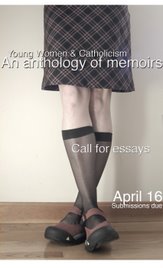 “The road ahead will be long. Our climb will be steep. We may not get there in one year or even in one term. But, America, I have never been more hopeful than I am tonight that we will get there.” Tears ran down my face as I drove to work on Wednesday morning. Listening again to the words of Obama’s victory speech replayed on NPR, I cried as I had the night before, with excitement that change truly is possible. I walked into the faculty lounge and joined some of my colleagues as they buzzed around the coffee pot with tears of their own. I ventured to my classroom only to throw aside my baptism lesson plans to listen to the thoughts and ideas of my students.
“The road ahead will be long. Our climb will be steep. We may not get there in one year or even in one term. But, America, I have never been more hopeful than I am tonight that we will get there.” Tears ran down my face as I drove to work on Wednesday morning. Listening again to the words of Obama’s victory speech replayed on NPR, I cried as I had the night before, with excitement that change truly is possible. I walked into the faculty lounge and joined some of my colleagues as they buzzed around the coffee pot with tears of their own. I ventured to my classroom only to throw aside my baptism lesson plans to listen to the thoughts and ideas of my students.Understandably, the school had asked us not to disclose any political opinions in our classes, a difficult task during the weeks leading up to the election since “I can’t tell you” only seemed to ignite a wildfire of questions.
“Ms. Ma’ake, who did you vote for? We won’t tell that you told!”
“Are you extra happy this morning?”
“Did you say the Pledge of Allegiance with extra umph this morning? Ms. Katana totally did!”
“Blink twice if you voted for the person who won!”
And finally the question I had been waiting for came. “Can we talk about Prop 8?”
I was surprised that the CA initiative to ban gay marriage hadn’t already come up in class. Every hand shot up.
“Can I ask a Church question? I don’t understand how we’re taught to love everybody, but the Church isn’t really accepting of gay people.”
As difficult as it is every year when this topic arises, I was glad that they were thinking, and questioning, and beginning to form opinions. The whole class looked at me, expecting me to say we had to start the baptism chapter, but instead I asked them to put the chairs in a circle so we could discuss. It was the fastest I had seen them move all year. I reminded the girls to be respectful of each other in their comments, briefly explained Church teaching, and pointed out that the Prop 8 initiative in CA, although related, was a separate issue than the Church’s stance on homosexuality. I watched as the discussion unfolded organically – as they shared how they felt and questioned the state, the Church, and each other. I didn’t have to say much (a good thing since there wasn’t much I was allowed to say) until the very end of class.
“Ms. Ma’ake, how come gay people don’t just get frustrated and leave to form their own church where they can get married and do what they want.” Suddenly I thought back to a liturgy class I had in grad school. Frustrated with what seemed to me like ridiculous and backwards moving liturgical regulations, I asked my professor, how she could still work in her field with so much to be angry and disappointed with. I found myself giving my students the same response she had given me. “Because they love this church. Because this faith tradition belongs to them too. Because Catholicism is something many can’t and don’t want to walk away from. Because people still believe that change is possible. Because if they leave and stop pushing and questioning and educating others on the importance of pushing and questioning, who will? And then how will change ever take place?” Heads nodded, “that makes sense.”
I was struck by their understanding of what it means to treat all people with dignity and respect and equality. I was struck by their enthusiasm and youthful confidence that “when we’re old enough to vote, we’re going to change things!” I was struck by the hope they filled the classroom with. When I talk about virtues in class we spend time redefining hope and correcting the false understanding of “hope” as “wish.” Hope, instead, is envisioning a change and then putting in the difficult work necessary to make that vision a reality. I was overjoyed that my students understand and live this notion of hope. They envision a change – a more just state, Church, and world. They hope.
I don’t think the reality of how significant this moment in history truly is has hit me yet, but I left school on Wednesday renewed and more hopeful than I have been in a long time, not only because of the change that is already taking place, but more so because of the change that is on the horizon.
Tefi Ma’ake spends much of her day either laughing (internally) at the silly things her students say or pondering the profound wisdom 16 year-old girls sometime surprise her with, all the while encouraging an honest and necessary questioning of faith and Church. Currently a high school teacher and campus minister, Tefi soon hopes to pursue doctoral studies in the field of religious education and multicultural theology.



1 comment:
Sounds like you handled this situation really well. Thanks for sharing your students' questions and hunger for discussion about Prop 8. Their attitudes give me hope, too.
Post a Comment